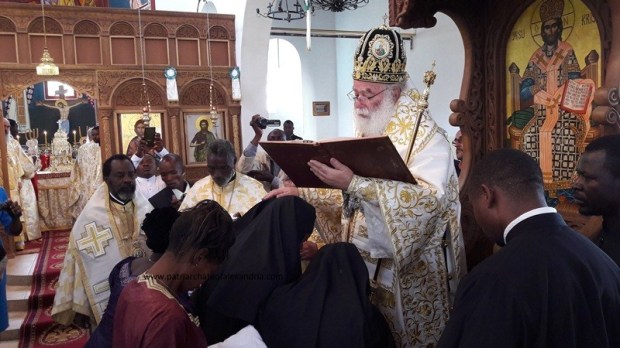Lenten Campaign 2025
This content is free of charge, as are all our articles.
Support us with a donation that is tax-deductible and enable us to continue to reach millions of readers.
A little newsfrom our Eastern siblings, from the Panorthodox Synod. It’s a statement from liturgists and theologians:
It has come to our attention that the venerable Patriarchate of Alexandria, after due consideration, has decided to reinstitute the ancient order of deaconess, in order to better serve the pastoral needs of the ever-increasing number of missionary parishes within the Patriarchate which serves the entire continent of Africa. The validity of this decision, however, has been questioned by some. We the undersigned, active and emeriti professors of liturgics and liturgical theology at various theological schools and seminaries in Greece and the United States of America, wish to express respectfully our support of His Beatitude Patriarch Theodoros and the Holy Synod of the Patriarchate of Alexandria in their effort to restore in a timely fashion the order of deaconess within the borders of the Patriarchate. The historical, theological, canonical, and liturgical validity of the order of deaconess has been attested to time and again in recent years by Orthodox scholars and theologians. Although the order of deaconess gradually fell into decline by the end of the fifteenth century, it survived among the Oriental Orthodox Churches and in some monastic communities. The Russian Orthodox Church before the 1917 Revolution and again in more recent times has considered restoring it. Likewise St. Nektarios and other contemporary Greek bishops have ordained deaconesses. In fact, the Church of Greece established a School of Deaconesses, which in the end developed into a school for social workers. The reinstitution of the female diaconate does not constitute an innovation, as some would have us believe, but the revitalization of a once functional, vibrant, and effectual ministry in order to provide the opportunity for qualified women to offer in our era their unique and specific gifts in the service of God’s people as publicly commissioned and authorized educators, evangelists, preachers, counselors, social workers, et.al. Initially, the liturgical role of the female diaconate, according to the sources, appears to have been limited. These same sources provide us with the rite of ordination of a female deacon, which is strikingly similar to that of the male deacon. Significantly, the liturgical vestments are the same as those of the male deacon’s. The decision as to whether or not women deacons will perform added liturgical functions in our times, as one theologian puts it, “remains exclusively the prerogative of bishops in synod.” Indeed, the very process of restoring the female diaconate requires careful consideration of several other factors as well, including the adequate preparation and education of the people who will be called upon to receive, honor, and respect the deaconesses assigned to their parishes.
Photo: Panorthodox Synod

